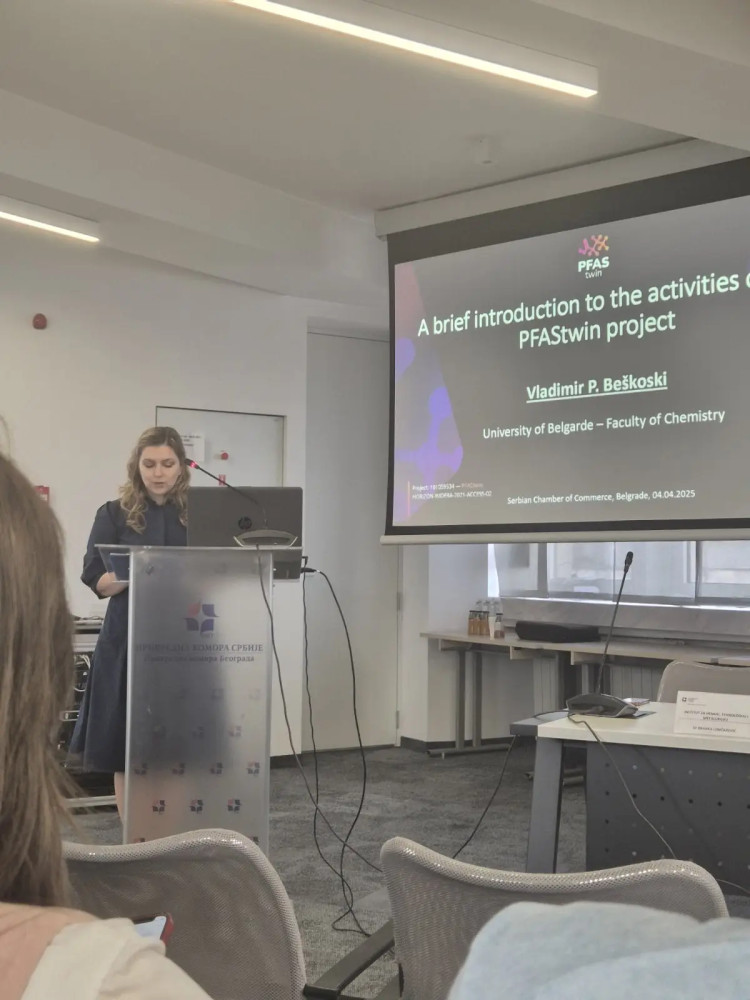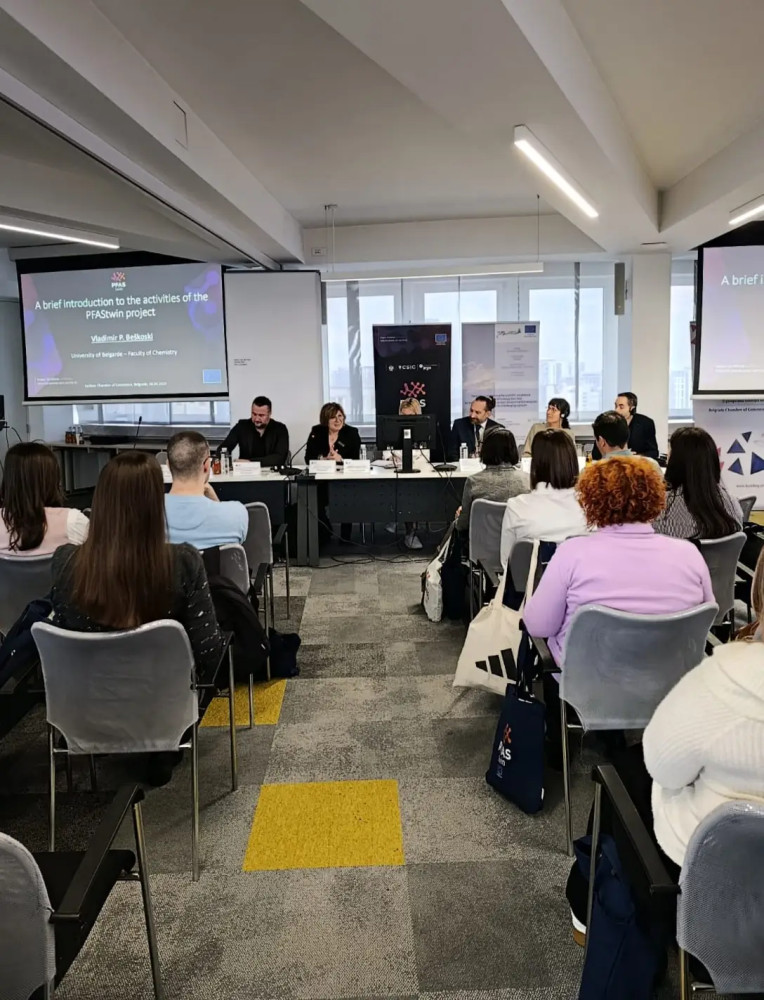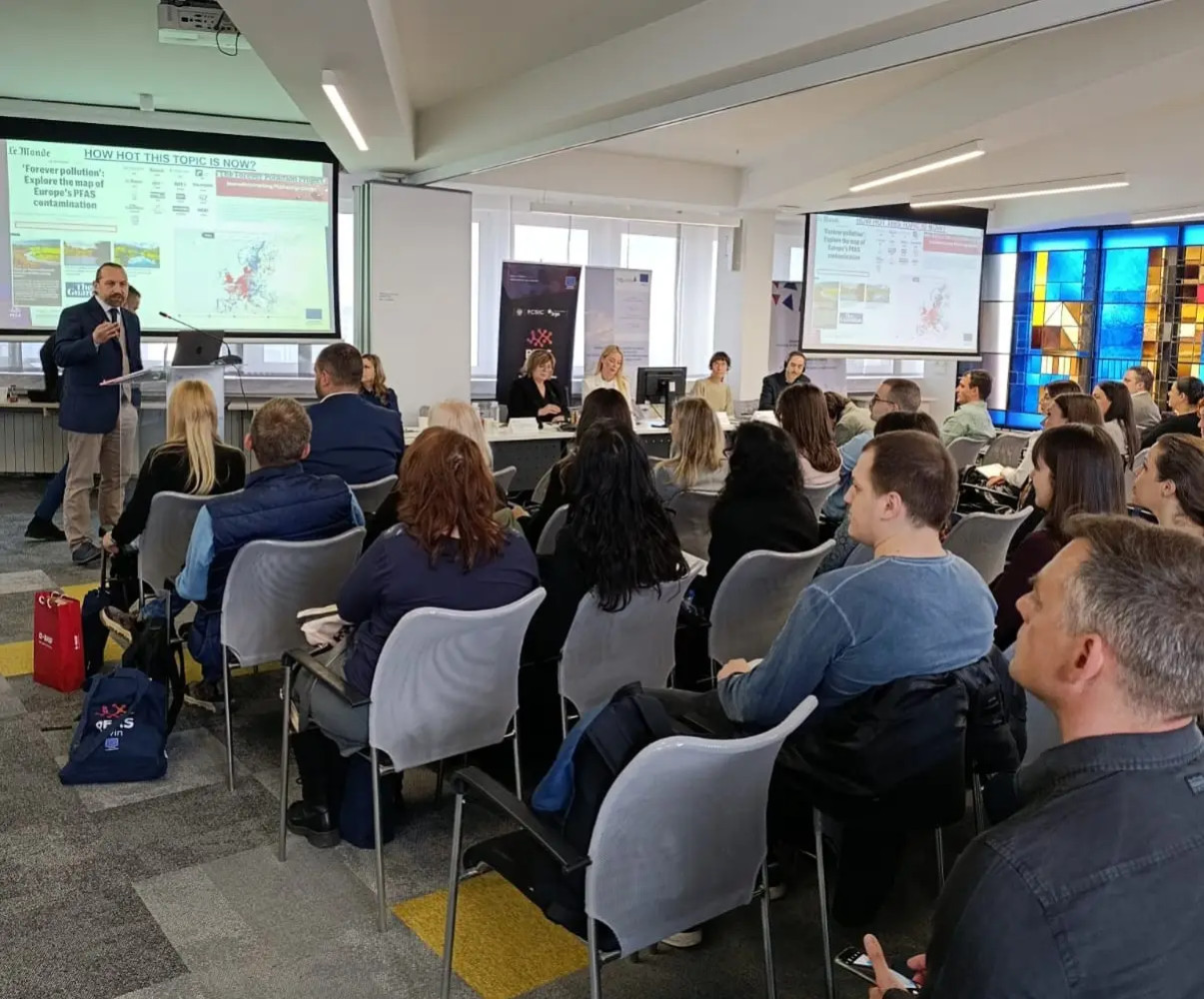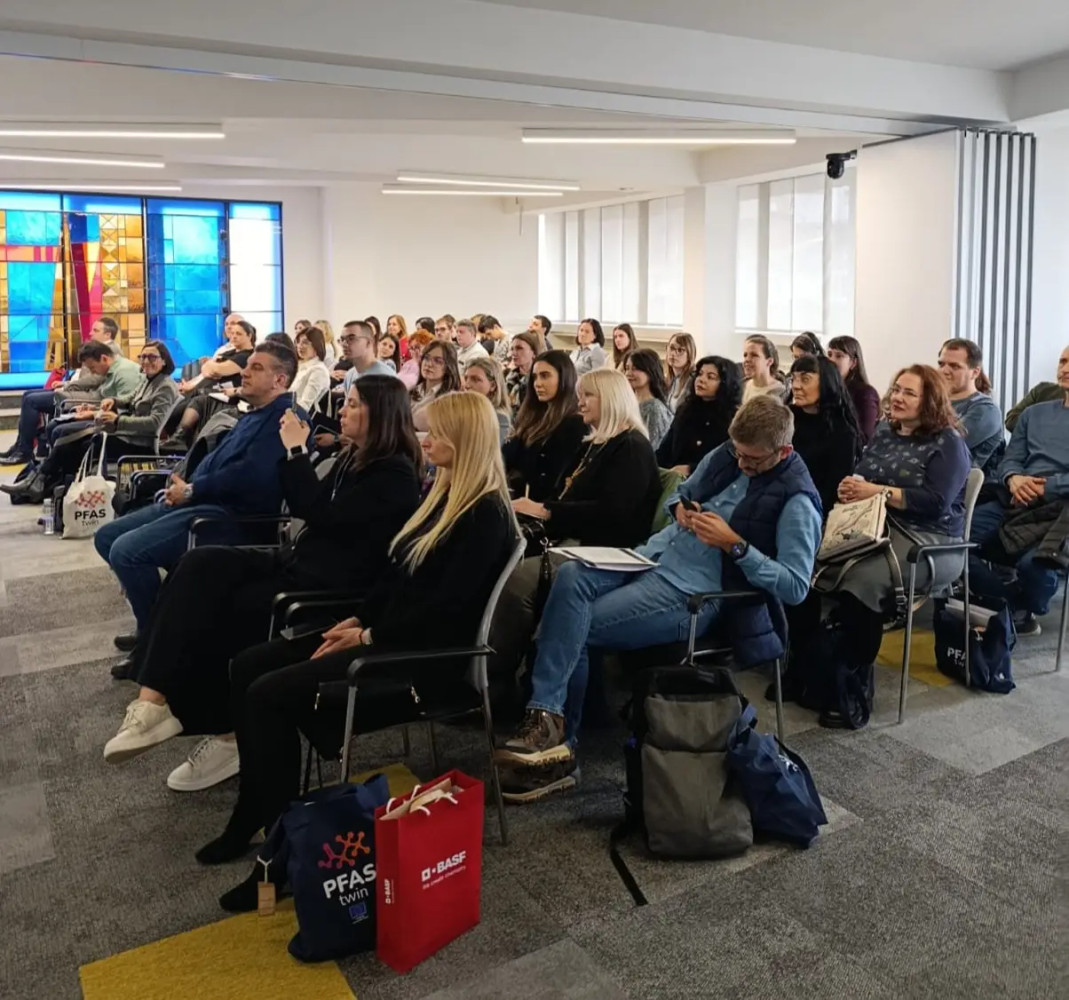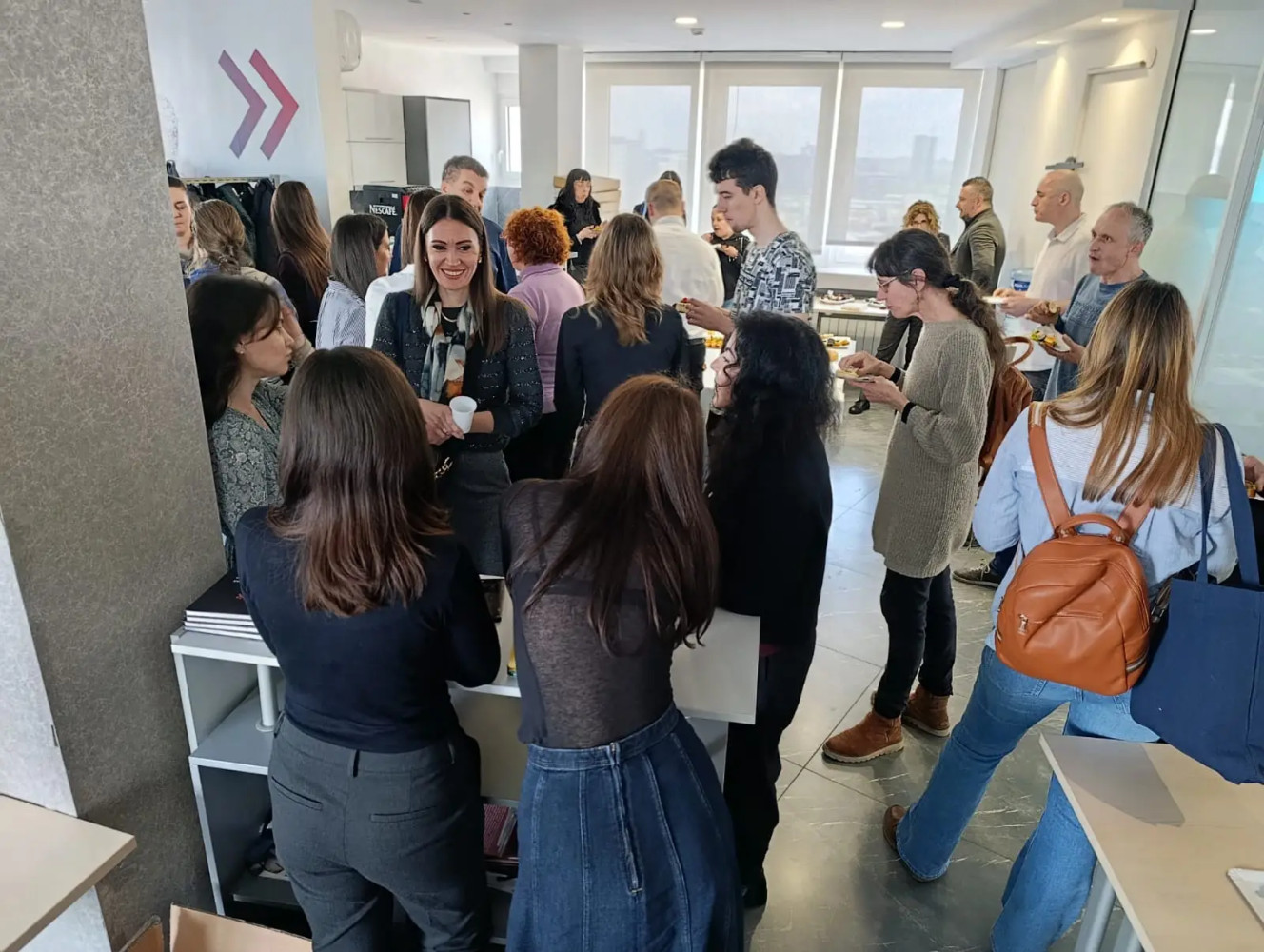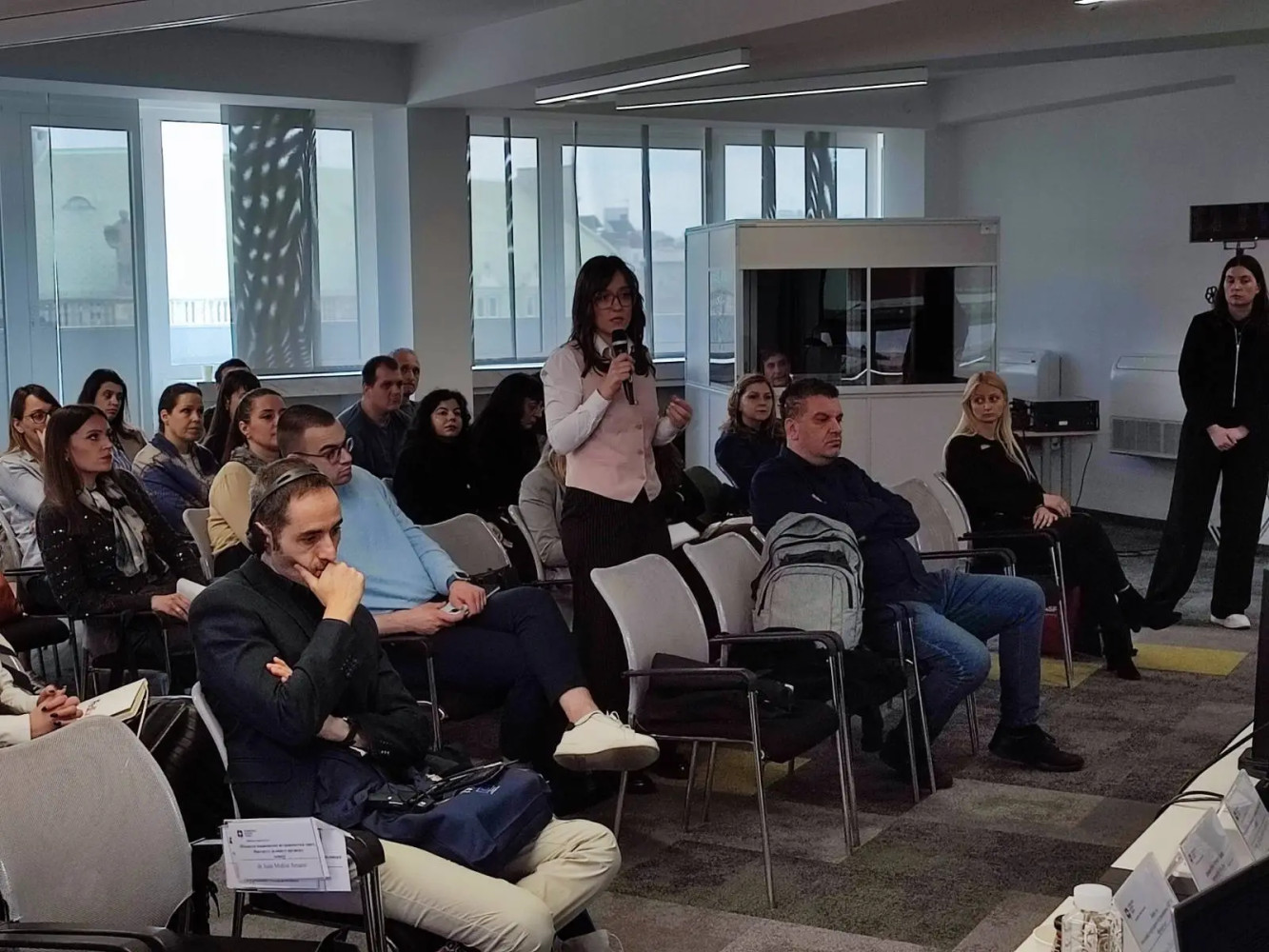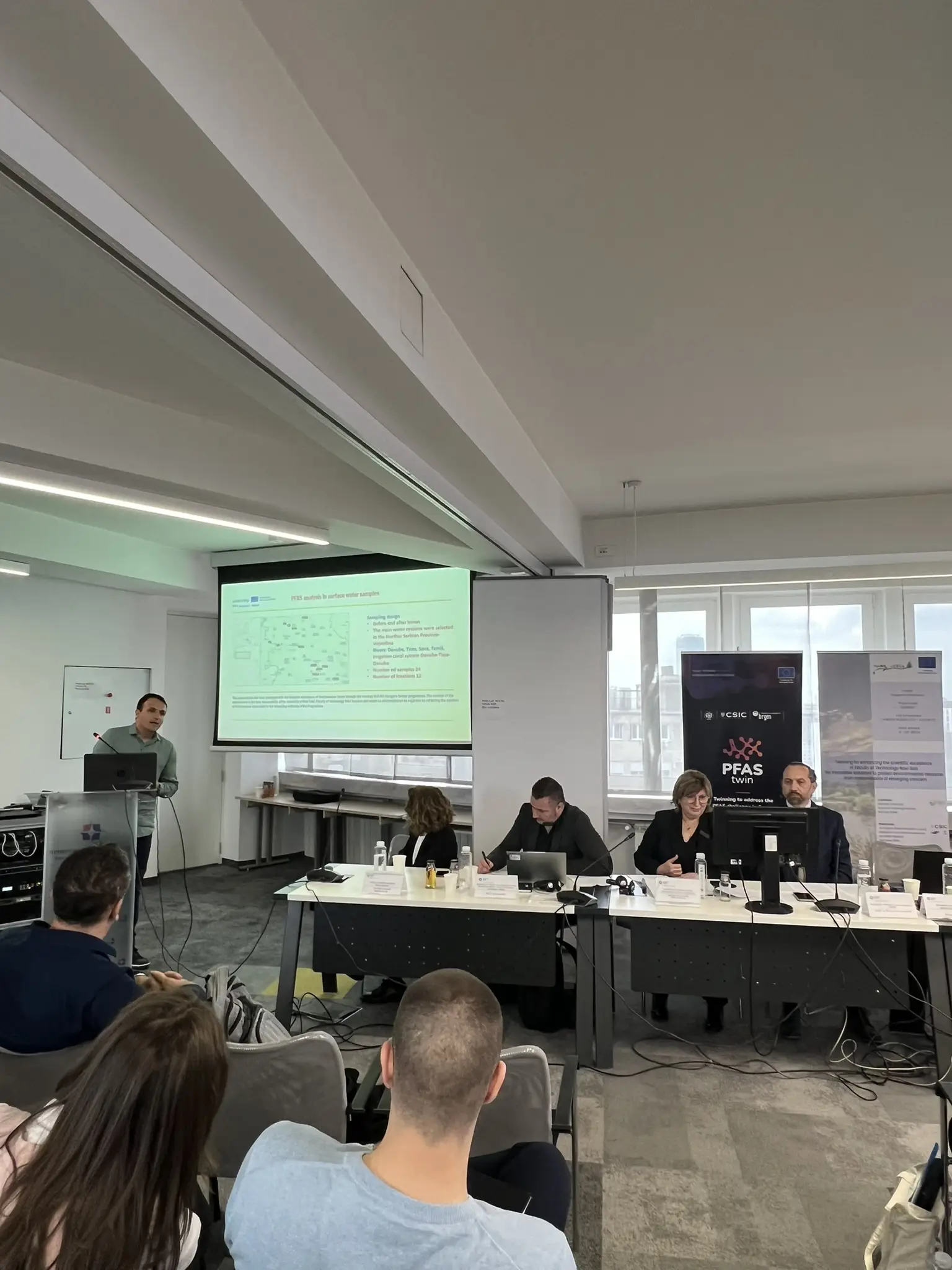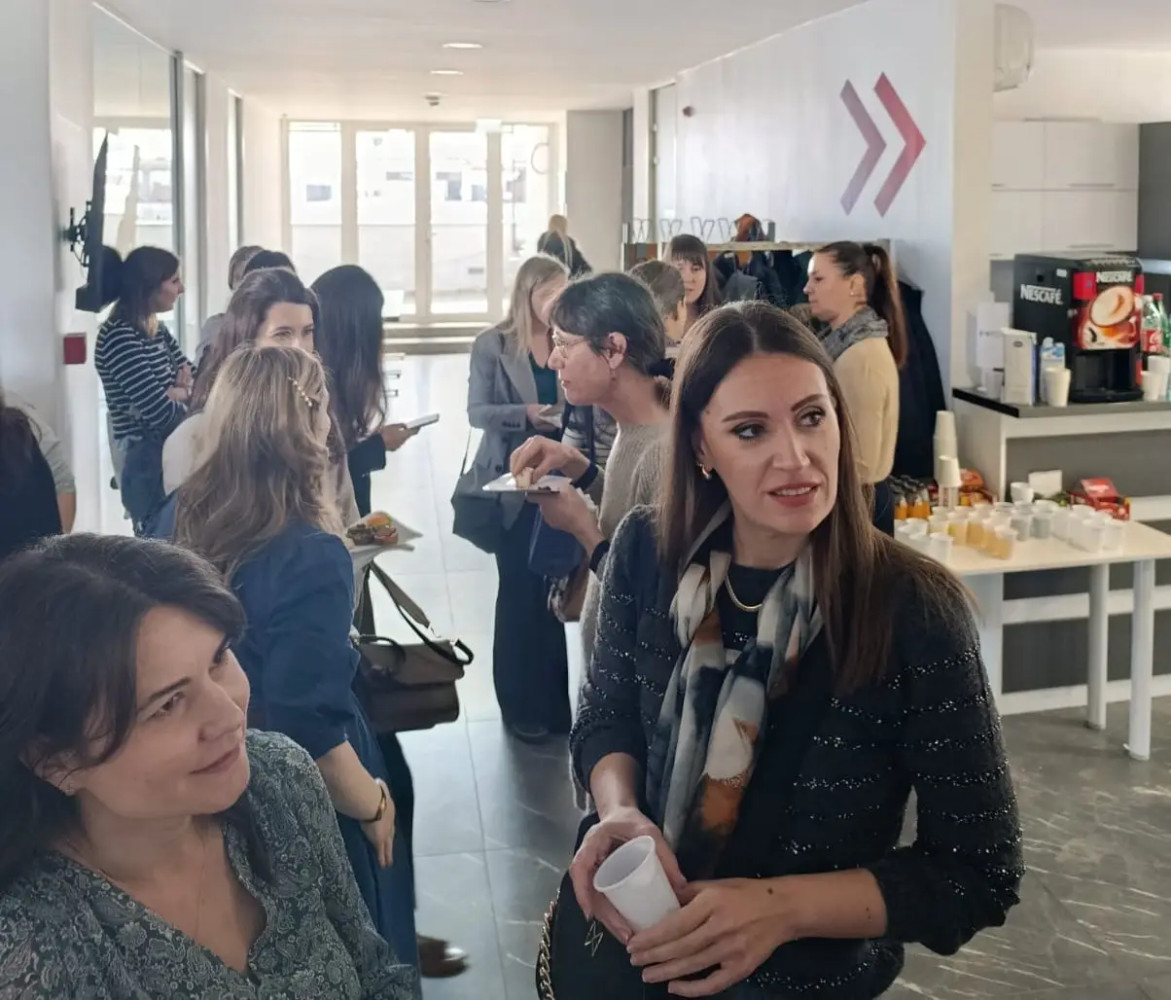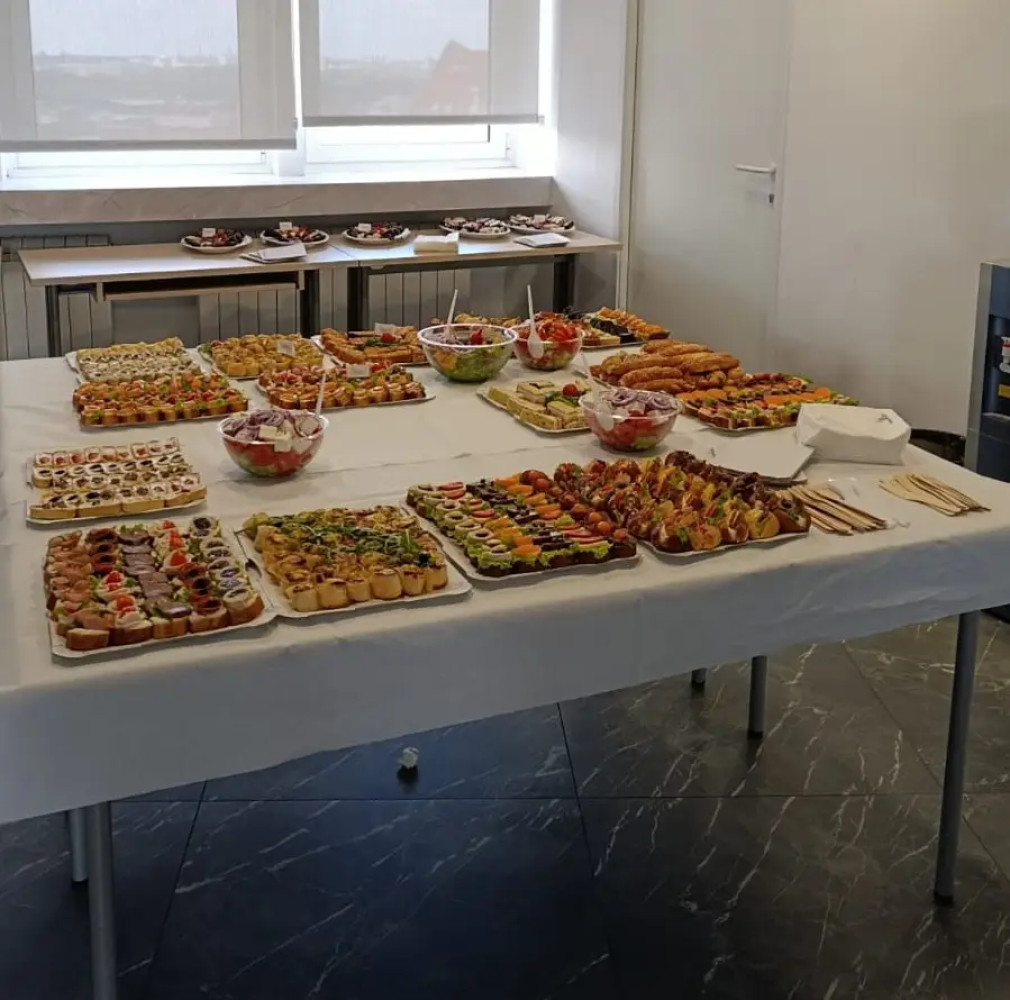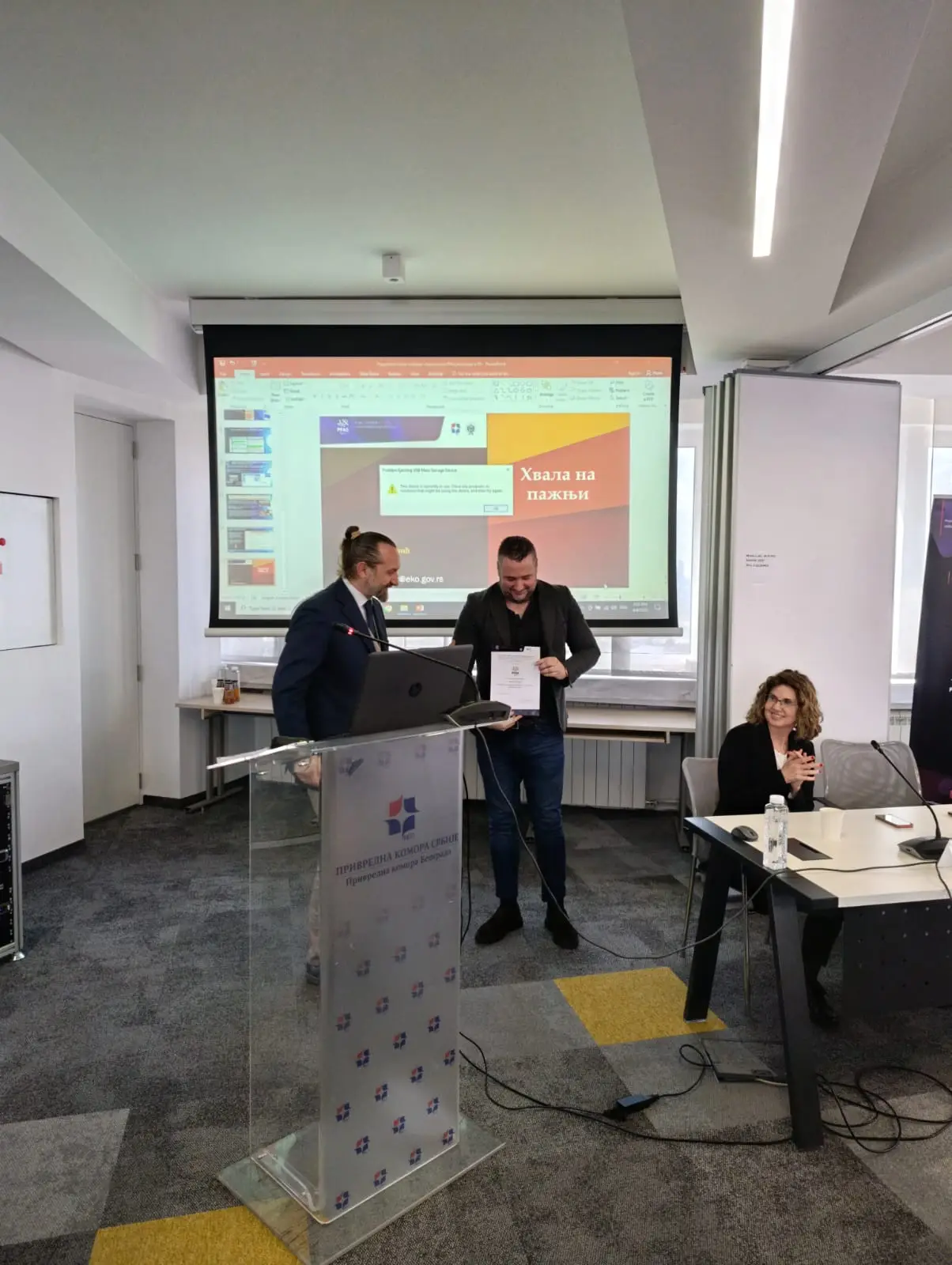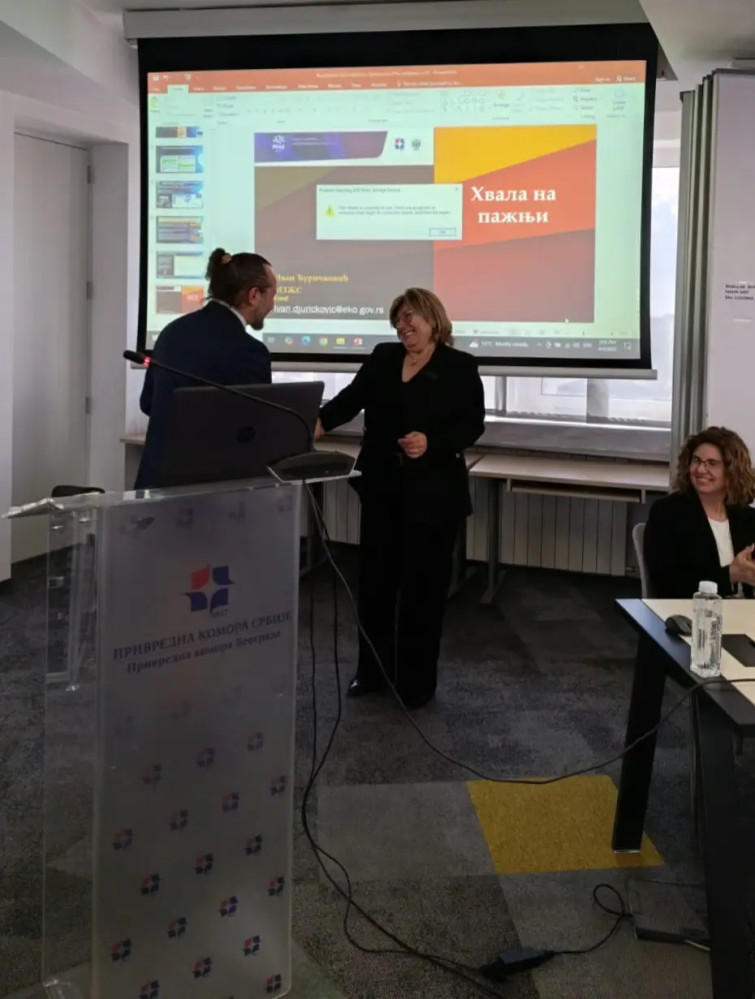The Chamber of Commerce and Industry of Belgrade, in collaboration with the Faculty of Chemistry, University of Belgrade, organized a workshop titled “PFAS in Serbia: Current Situation, Scientific and Regulatory Challenges, and Future Steps” on April 4th, as part of activities within the PFAStwin project.
The workshop gathered scientists from several national faculties, institutes, and laboratories involved in PFAS analytics, as well as representatives from companies and international project partners from France and Spain. The event was held at the Chamber of Commerce in Belgrade.
The opening remarks were delivered by Dr. Branka Lončarević from the Institute of Chemistry, Technology, and Metallurgy, University of Belgrade, who stated:
“PFAS substances - known as 'forever chemicals' - represent a global environmental and health challenge. Their widespread industrial use and long-term persistence in the environment raise serious questions in terms of regulation, scientific research, and remediation measures. While many countries are already actively working on limiting and managing these substances, Serbia is only at the beginning of this journey. This is not merely an academic discussion - our goal is to encourage dialogue between the scientific community, policymakers, regulatory bodies, and industry. Only through a multidisciplinary approach can we shape strategies that are realistic and adaptable to our context.”
The workshop began with an address by Ms. Vidosava Džagić, Assistant Director of the Chamber of Commerce and Industry of Belgrade. Drawing on her experience in both the private and public sectors, as well as various associations where she collaborated with companies, research and academic institutions, innovation and development sectors, public administration, local governments, international organizations, and industry experts, she emphasized the importance of improving the business environment and enhancing the competitiveness and performance of the Serbian economy.
Following this, Dr. Vladimir Beškoski from the Faculty of Chemistry introduced the audience to the activities of the PFAStwin project. As a representative of the partner institution from Spain, Dr. Juan Muñoz Arnáiz from the Spanish National Research Council (CSIC), Institute of General Organic Chemistry (IQOG-CSIC), shared his experiences related to these persistent chemicals.
After a short break, Dr. Fabienne Battaglia-Brunet, from the Bureau of Geological and Mining Research (BRGM) in Orléans, delivered a lecture titled: “Perspectives on PFAS Treatment in Light of BRGM's Experience and Supported by Cutting-Edge Technologies.”
Ivan Đuričković from the Ministry of Environmental Protection spoke about PFAS regulation in Serbia.
A roundtable discussion followed, accompanied by a very dynamic exchange of ideas on PFAS substances. Participants included:
-
Dr. Fabienne Battaglia-Brunet (BRGM),
-
Dr. Begoña Jiménez (IQOG-CSIC),
-
Vidosava Džagić (Chamber of Commerce and Industry of Belgrade),
-
Ivan Đuričković (Ministry of Environmental Protection),
-
Prof. Dr. Nataša Đurišić Mladenović (Faculty of Technology, University of Novi Sad),
-
Dr. Nataša Veličković (Institute for Biological Research “Siniša Stanković”).
The moderator of the discussion was Dr. Vladimir Beškoski from the Faculty of Chemistry.
Through discussions with the broad audience, the current state of PFAS presence in Serbia was examined, including the latest scientific findings on their impact on health and ecosystems. Regulatory frameworks in Serbia and the EU were analyzed, along with challenges in implementation, while best practices and proposed steps for more efficient PFAS management were considered.
The discussion continued during a networking cocktail organized as part of the workshop.
Participants jointly reached several key conclusions:
-
PFAS are persistent pollutants with long-term consequences for ecosystems and human health.
-
There is a need to improve analytical methods and increase laboratory capacity for detecting these compounds.
-
Monitoring and regulation are essential, but significant implementation challenges remain.
-
Collaboration between industry, the scientific community, and decision-makers is necessary to find sustainable alternatives and effective remediation strategies.
At the end of the event, participants were awarded certificates and presented with the project strategy.

